Goals Are The Goal!!!
Heyo!
I was talking with my buddies a few nights ago about the nature of games. We have all these games in our collections that we tend to sorta just... drop, y'know? I've been on the same save file of Pokemon Black 2 for something like 6 years now because even though I do crack it open now and then, more often than not I'm falling back on my old reliable friends like Nier:Automata and NEO: The World Ends With You and Kingdom Hearts 2, and it really does seem like a weird sort of problem to have that I usually would rather replay a game I've already burned through than finish a game that I'm still working on.
This isn't the whole "Unplayed Steam Library" issue, either. I mean, it is a little bit of that, sometimes I do just impulse buy a game only to never crack it open for months. However, this is a different issue I'm referring to today, the issue of when you start a game and are invested in it long enough to play for hours, maybe even several days at a time, but ultimately find yourself playing it in on and off bursts.
In some ways I think this can cultivate a healthier relationship with a game. I'm categorically a member of the "Drifter" side of the gaming groups defined in this brilliant video from Daryl Talks Games, in which I tend to take a very long time to beat games, often entire years (Unless it's a brand new release in a very important franchise like Pokemon or Final Fantasy in which case expect me to burn through it in a week), and this has a lot of benefits. A lot of games stick in my memory longer, I was actually living in three different homes during my playthroughs of Xenogears and so I actually have nostalgic memories from three entirely different locations when I think about my memories playing that game. Studies suggest that people who consume a work over a longer stretch of time have a better long term memory of that work, and for that reason, are more likely to develop positive feelings towards it.
There are drawbacks too, of course! Take too long between two bouts of playing a game, and you'll certainly lose skill and probably forget where you're going. That aforementioned Xenogears playthrough totalled 90 hours, probably because of all the extra time I spent scrambling around trying to remember where I was going.
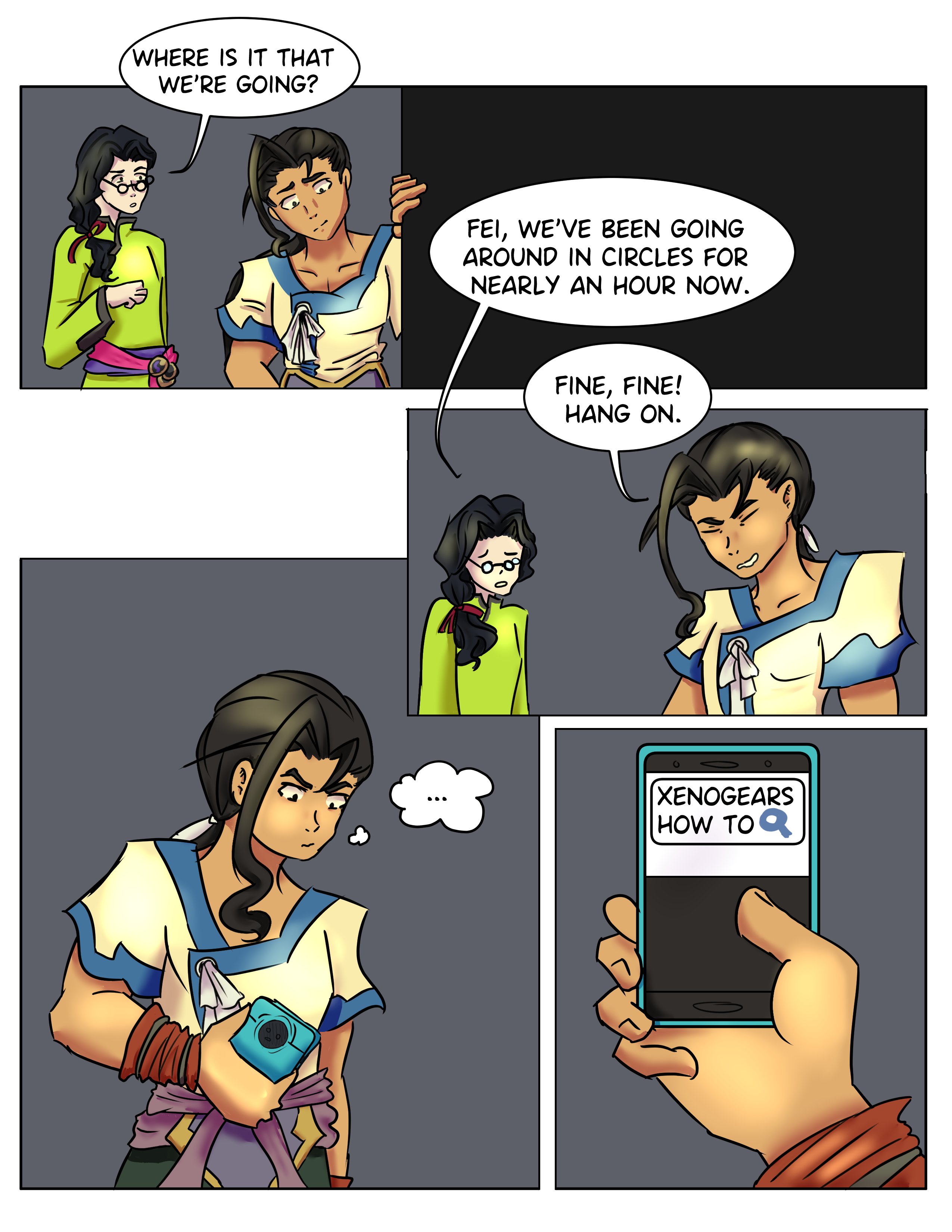
Royal had this problem after playing the game for like 2 hours, imagine how I felt!
This isn't about the effects of dropping and picking up games often though. Instead, it's a different question:
What is it that makes players drop our games?
Obviously, there's no one single answer. Like the video I linked mentioned, one reason is that players like to knock things off their backlogs. Simply beating a game is a pretty surefire way for a player to stop playing for a little while, or permanently. But there are other causes as well. Getting stuck, not knowing where to go, getting distracted by something more interesting, or just losing interest in general are all death sentences for a game. These aren't always bad things, either. If a player leaves your game and returns to it later, that leads back into the whole long term memory thing.
But if your goal is for your players to keep playing your game, what is it that games can do to keep people around?
ANECDOTE TIME!
You've heard of Death Stranding, probably. The game is a literal walking simulator. The story is bizarre and barely comprehensible, and it's really difficult to call anything about it fun. 8/10. Honestly, I only picked up the game because fetuses were sorta my mascot for a pretty long time and so naturally a game where you run around with a fetus in a jar was something I just needed to try (I also just really wanted that jar fetus that came with the collector's edition, and it's still on my desk). So really, I kinda had to force myself to beat the game. I don't regret it, I actually more or less enjoyed the game in the end and it was a worthwhile experience for me.
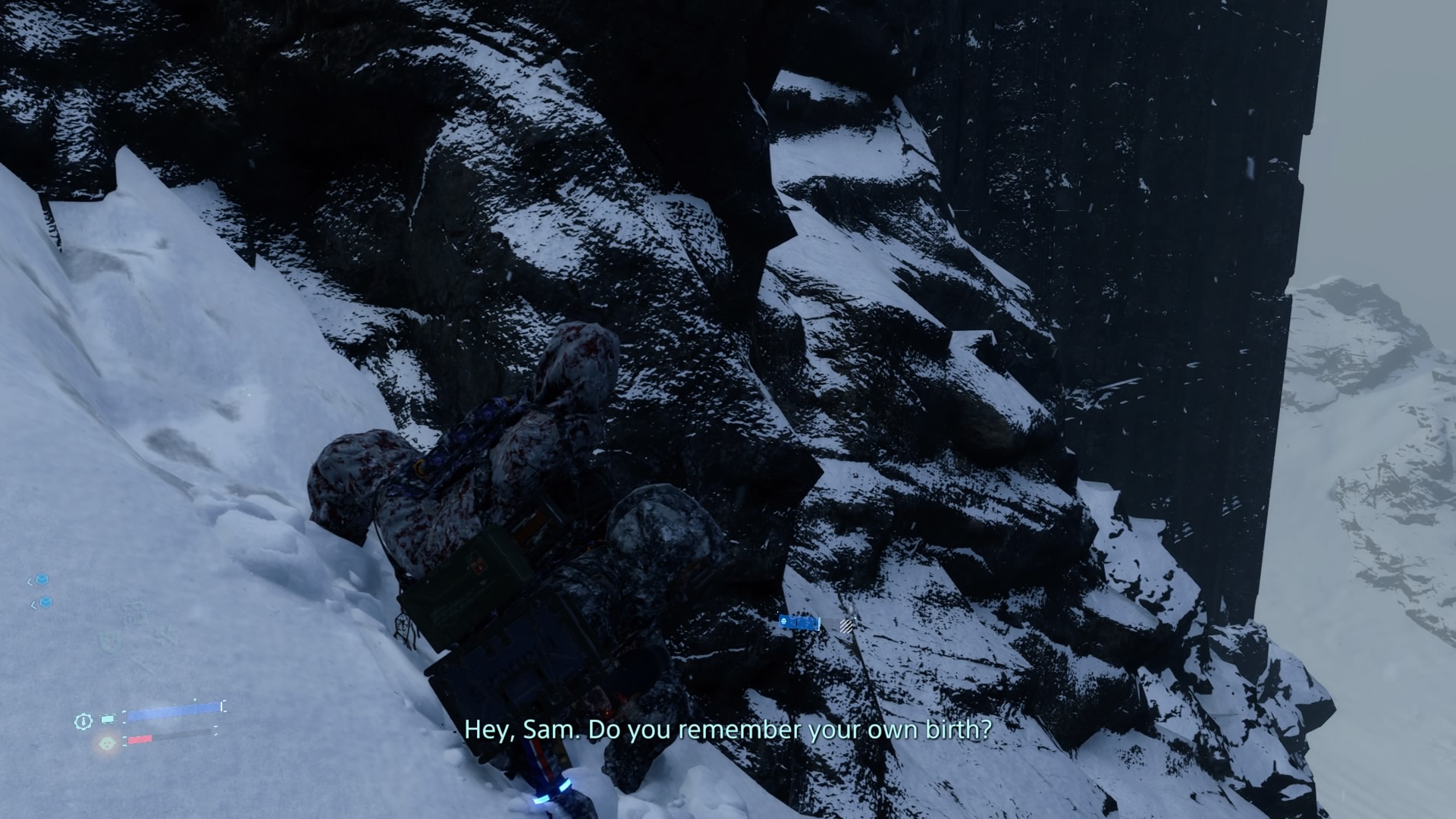
This game was really freaking weird.
But the only reason I even cared enough to beat it was because I just wanted to know what the fuck the deal was with this game. Where was it going? What was this story even shaping up to? And, again, what the heck is the deal with the jar fetus? The game gives you a ton of bizarre "WTF" leading questions and answers very few of them through the course of the story. It did take me several years to finish the game, but I didn't beat it just to "get it out of the way" but because I was genuinely invested in finding out what I was even playing.
In my opinion, if the drive to understand a game was enough to drag me through something as unfun as Death Stranding, I think it's safe to say that you can get anyone to beat your game with the right tactics. And while I tried figuring out what the deal with all this was, I boiled it down to a conclusion: the answer is goals.
WOOO finally addressing the title of this blog!
Fundamentally, players will keep playing your game if they have a goal and are invested in seeing it through. These can be big established goals, like beating the game, smaller chunked up goals like completing the current quest, and self imposed goals of varying scale. EV train these Pokemon, earn enough money to buy that expensive Pin, unlock that one very special class. If your player has something worth working towards, they're going to keep playing.
So, what makes a goal worth playing for?
It depends. EYYYYYY. But in all seriousness, it naturally does vary from player to player. Not everyone is a completionist, and even completionists stop playing a game when they've... completed everything. So for starters, having a lot of content is a boon. Make a long main story with lots of side content for players to dig into. But along with that, I think the real meat of creating goals for a player comes around giving the player a variety of things to work towards.
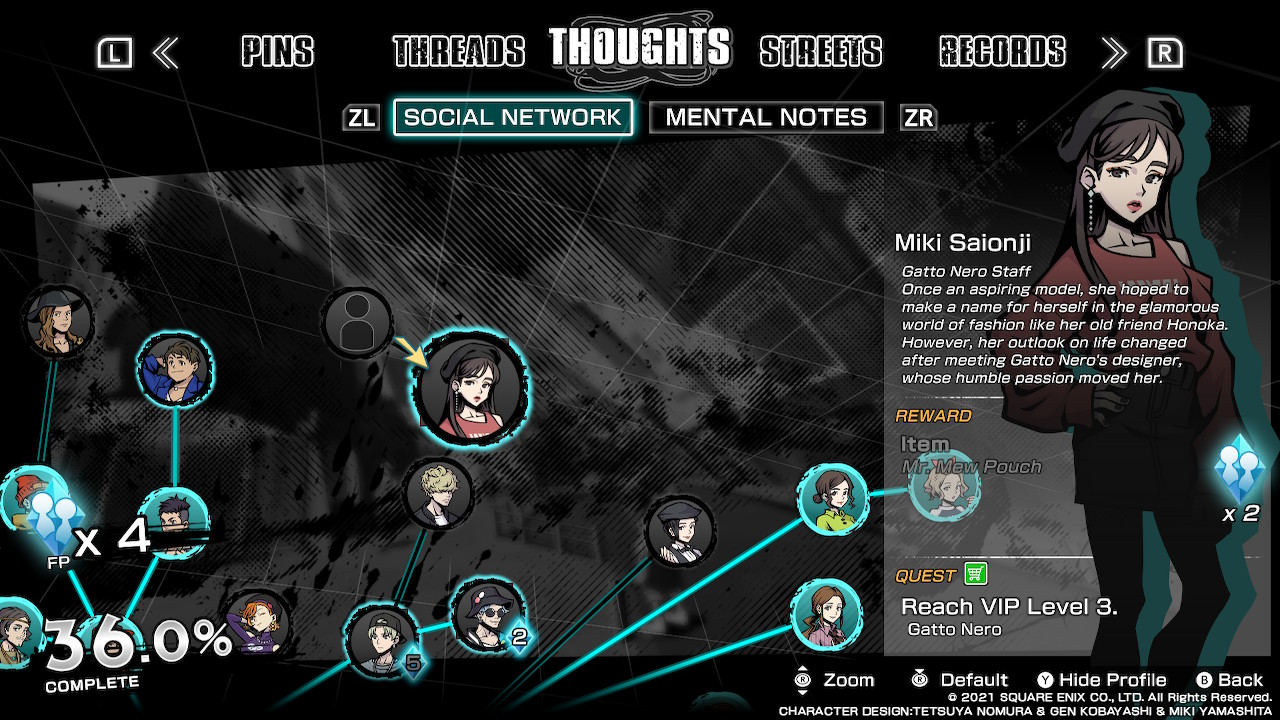
In Neo: The World Ends With You, the reward towards finishing a part of the skill tree is unlocking more branches to work towards!
One great way to make goals that last is to create a stacking Matryoshka doll out of your goals; that is to say, the reward for completing one goal is more goals to work towards! Skill trees can be a great place for this: if getting a specific skill is your current goal, by the time you get there you'll likely have unlocked more skills on the tree in such a way that by the time one is complete, you already have the next one to work towards. This feels most effective if players are adequately rewarded and are given flashy new toys to play with as they complete their goals; often it isn't just about getting stronger, but about seeing what lies beyond in the tree!
Another great option is to invest the player with something they want to see paid off. Putting an expensive item in a shop can really get a player's attention and make them desperate to find out what that item does. When a mysterious character eludes to an interesting backstory, players become eager to find out what that guy's deal is. Sometimes, this can even come from other players. When everyone was talking about how controversial the ending of Final Fantasy VII Remake is, I got really eager to see how it plays out without getting it spoiled for me!
Lastly, goals can be created by players, but your game can cultivate those goals with its systems. Pokemon's advanced combat mechanics combined with PvP options created a great ecosystem for players to constantly create and tweak their teams and continue evolving the metagame, playing more as a result. Any game with great movement options is bound to have speedrunners, too!
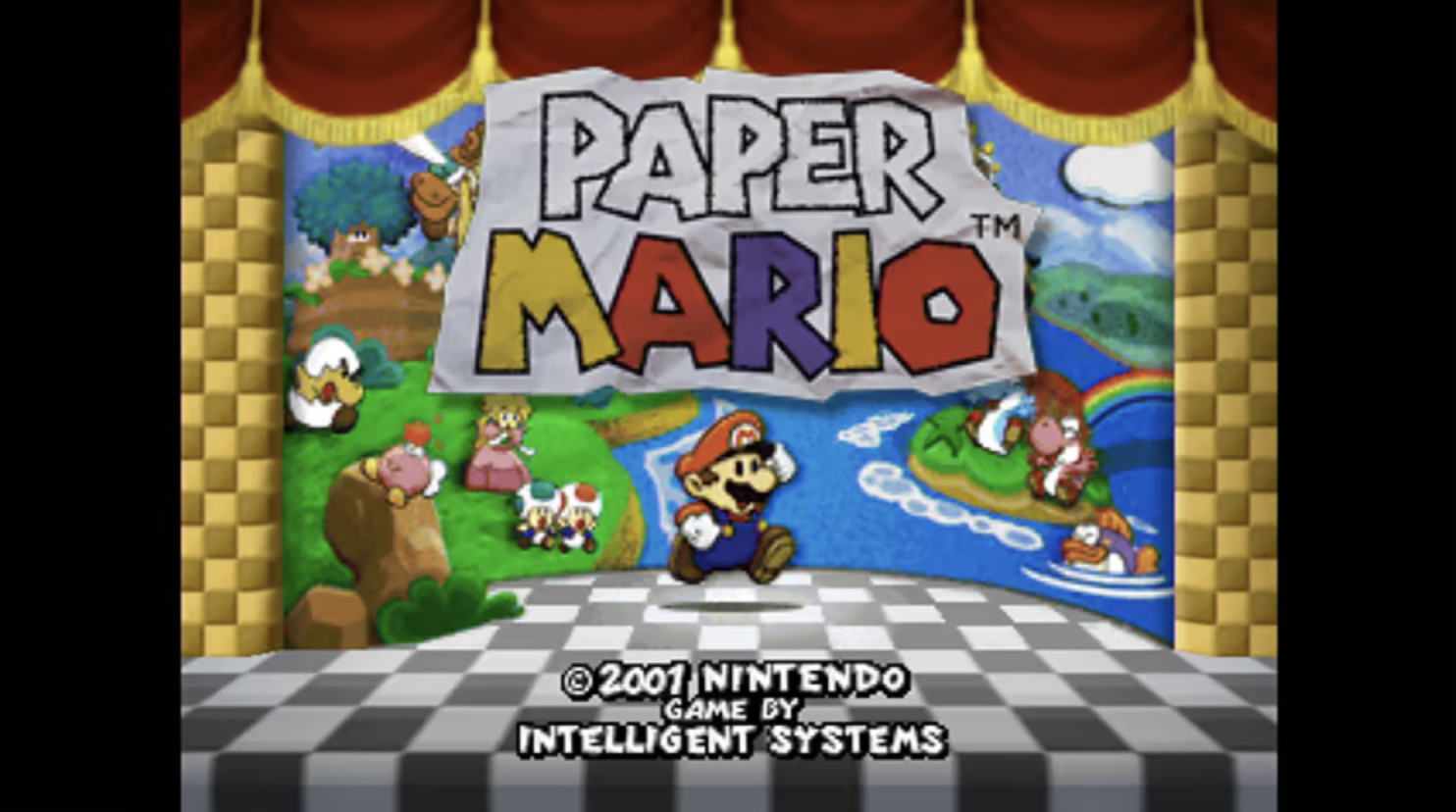
They're still finding weird bugs in Paper Mario, and that just makes people wanna play it more!
Well, I think that's all from me today. It's okay to have a one-and-done game, but if you want players to get more out of your game than just the main plot, try creating and encouraging a variety of goals!
Get Axial Disc 2
Axial Disc 2
That's the way it is.
| Status | Released |
| Author | Sawyer Friend |
| Genre | Role Playing |
| Tags | 16-bit, 8-Bit, chiptune, Game Boy, JRPG, Pixel Art, Retro, Singleplayer, Turn-Based Combat |
More posts
- 1.1.7 (13/19/24)Dec 19, 2024
- 1.1.5 (11/30/23)Nov 30, 2023
- 1.1.0 (08/04/23)Aug 05, 2023
- Patch 1.0.5 (07/25/23)Jul 25, 2023
- Patch 1.0.4 (07-15-23)Jul 15, 2023
- Axial Disc 2 OST Out Now!Jul 13, 2023
- DISC 2 UPDATE 1.0.3 (07/09/23)Jul 10, 2023
- Thank YouJul 04, 2023
- Director AMA - 01/18/23Jan 18, 2023
- Director AMA in the Discord, Tuesday at 4 PM MST!Jan 16, 2023
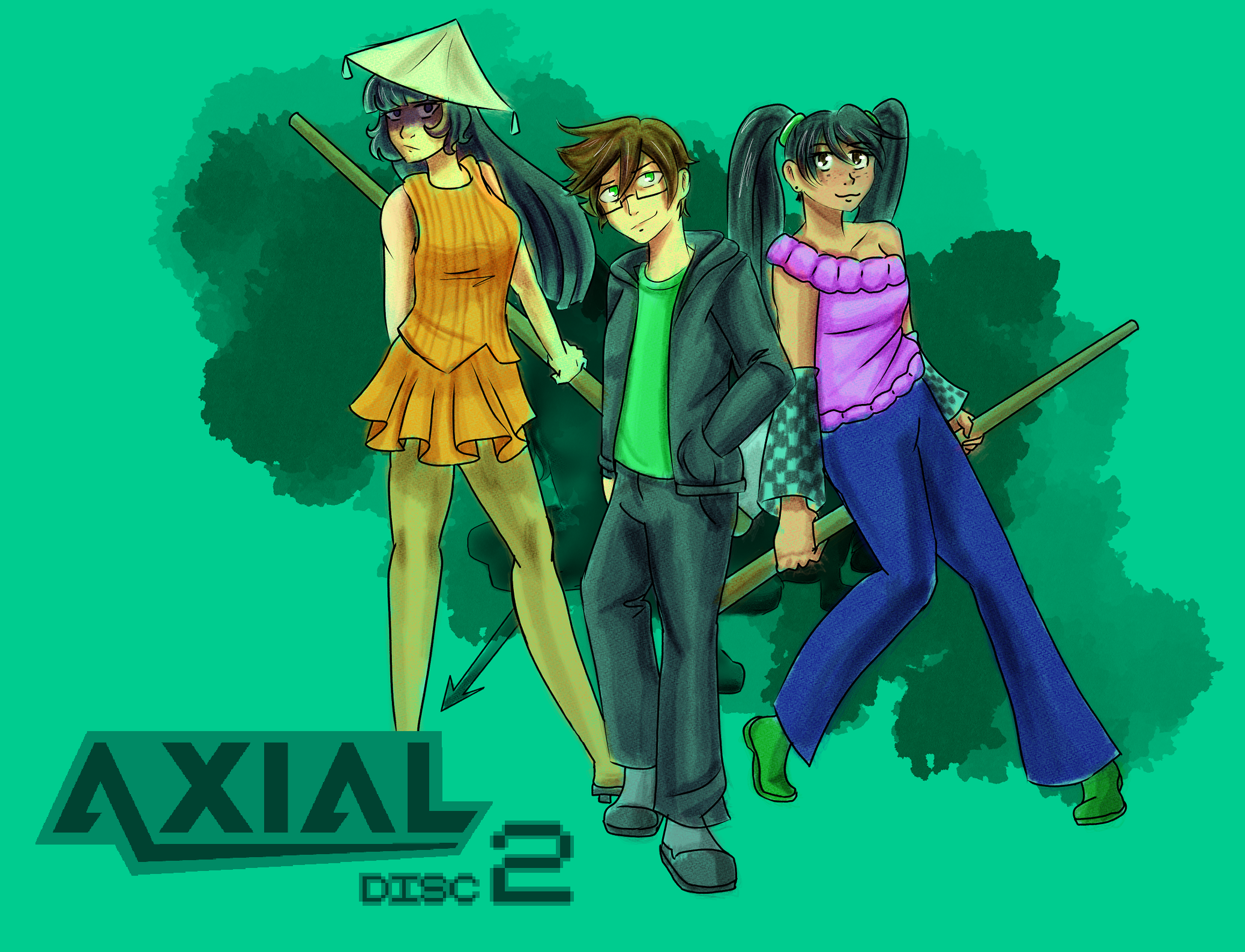
Comments
Log in with itch.io to leave a comment.
These are really fantastic points, thanks for sharing! xD I can't stop laughing about jar fetus tho....wtf... xD